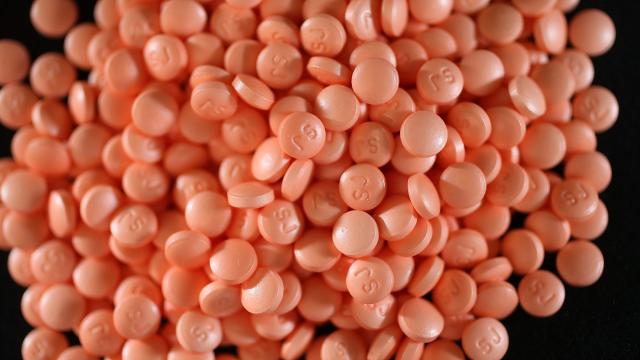A dose of aspirin can do more than just soothe your headache, a new study suggests — it might also protect your lungs from air pollution.
Air pollution harms our bodies in all sorts of ways, both short-term and long-term. One of these ways is through irritating and inflaming lung cells.
So it makes sense that aspirin and other nonsteroidal anti-inflammatory drugs (NSAIDs) could have a protective effect. There’s even research showing that the daily use of aspirin is linked to a reduced risk and slower progression of chronic obstructive pulmonary disease (COPD), a lung condition characterised by chronic inflammation which can be caused or worsened by air pollutants like tobacco smoke.
But according to the authors of this new study, published late last month in the American Journal of Respiratory and Critical Care Medicine, we don’t know whether NSAIDs could mitigate the acute effects of pollution on the lungs.
To remedy this, they looked at data from an ongoing study of veterans. The long-running study has been tracking the health of more than 2,000 American veterans in the greater Boston area since the 1960s, including their lung function. And since 1995, the same area has also had its air quality measured regularly.
This meant the authors could compare the lungs of volunteers who had reported taking NSAIDs in the past month to those who hadn’t, post-exposure to air pollution in the area. All told, data from more than 3,000 doctors’ visits between 1995 and 2012, involving over 1,000 volunteers, was included, with the average age of patients being 72.
As expected, people exposed to a relatively large dose of air pollution on their test day had worse lung function. But people who had been taking NSAIDs recently weren’t quite as worse off as those who hadn’t. On average, the researchers estimated, the lungs of people who used NSAIDs were nearly half as affected by air pollution as those who hadn’t used them. And this protective effect seemed to exist even when you took into account people’s age, smoking history, and BMI.
“Our findings suggest that aspirin and other NSAIDs may protect the lungs from short-term spikes in air pollution,” said lead author Xu Gao, a post-doctoral research scientist at Columbia University’s Mailman School of Public Health, in a statement released by the university. “Of course, it is still important to minimise our exposure to air pollution, which is linked to a host of adverse health effects, from cancer to cardiovascular disease.”
These sorts of studies, of course, can’t prove Gao and his team’s theory. One glaring limitation of this study, for instance, is that they relied on people’s own recollections of whether they had used NSAIDs, which can be flawed. They also couldn’t pin down the dose or timing of NSAIDs it would take to actually protect the lungs from short-term harm. And in this study at least, the effect was only seen in people who took aspirin, not other NSAIDs. Because only a few people used exclusively non-aspirin NSAIDs, though, the sample size might have been just too small to pick up on their benefits.
Still, NSAIDs and aspirin are already in widespread use. So if there’s one more thing they can be helpful for, so much the better. The authors say that larger studies, including randomised trials, are needed before these drugs should be billed as anti-pollution aids, though.
